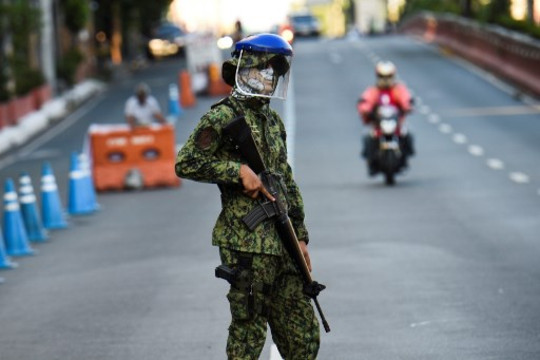A day after the Philippines Congress passed the bill, President Duterte signed the law declaring a state of national emergency. The law operates in addition to previous actions taken, such as Duterte’s declaration of the Philippines under a state of calamity on March 17 which saw a lockdown over the island of Luzon and the deceleration of a public health emergency on March 9.
The Section 6(6) in the new law seeks to penalise "individuals or groups creating, perpetuating, or spreading false information regarding the COVID-19 crisis on social media and other platforms, such information having no valid of beneficial effect on the population, and are clearly geared to promote chaos, panic, anarchy, fear, or confusion; and those participating in cyber incidents that make us or take advantage of the current crisis situation to prey on the public through scams, phishing, fraudulent emails, or other similar acts".
Even before the act took place, the Philippine National Police task force was allowed to penalise supposed purveyors of “fake news”. In Cebu City, for instance, Governor Gwendolyn Garcia publicly humiliated rapper Brandon Perang for making fun of the government efforts against the pandemic on social media. Perang was escorted by the head of Cebu Police Provincial Office to the Capitol where a case was filed against him despite an apology to the Governor for his social media post.
NUJP, in a joint statement with other human rights and media organisations, said they acknowledge the need to fight disinformation in this time of crisis, however, they fear the law will only criminalise free speech. The law will let the government be the arbiter of what is true or false, a prospect that cannot invite confidence given the fact that many administration officials, including the chief executive, have been sources of disinformation and misinformation.
“The best way to fight disinformation is through education and the truth. In times of crisis, when the swift delivery of accurate information to our people is vital, we need more, not less, independent reporting. Alas, Section 6(6) and the accreditation requirement imposed on media will result in the opposite, to the detriment of our people,” NUJP added.
The IFJ said: “The measurements taken by the government to fight Covid-19 are no excuse to curb press freedoms, particularly when the media is needed to keep the public informed and safe.”

